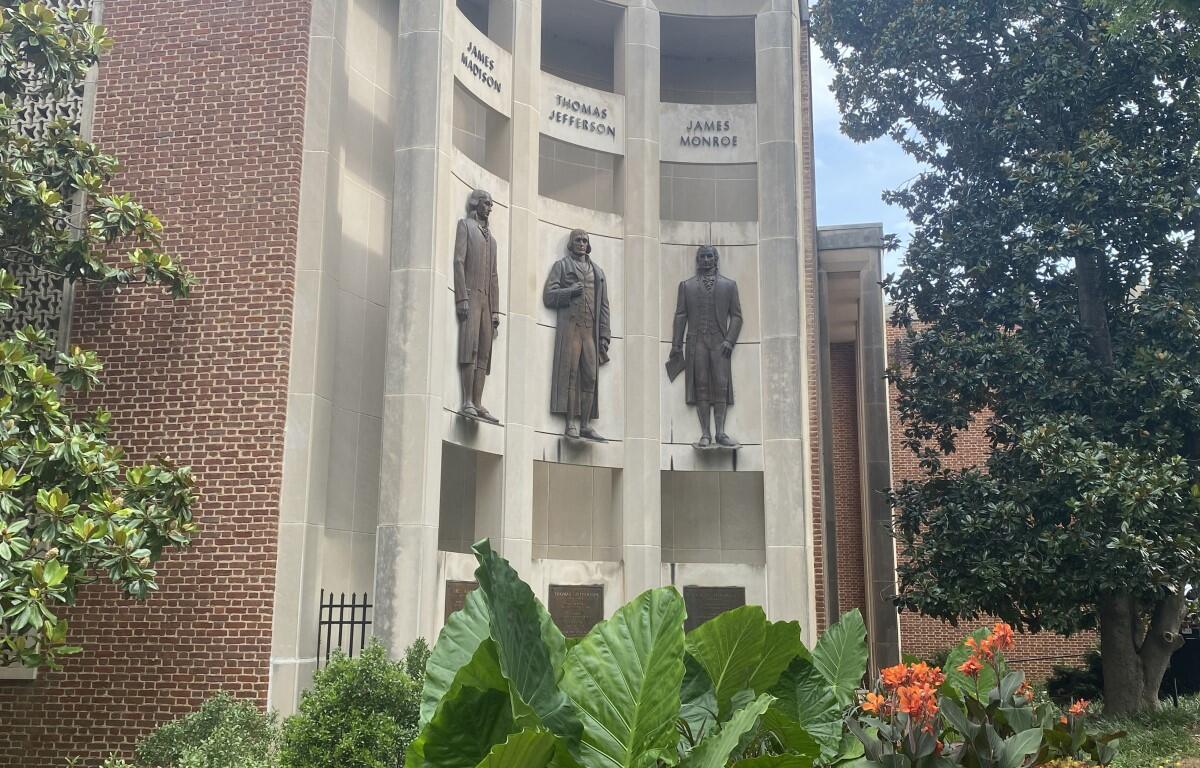CHARLOTTESVILLE, Va. (CVILLERIGHTNOW.COM) – At its August 19 meeting, Charlottesville City Council will conduct the first of two readings of a draft ordinance that would allow the city to adopt ranked choice voting. Former state delegate and ranked choice voting advocate Sally Hudson says the choice is clear.
“It’s a small change to ballots that makes a big difference for democracy,” Hudson said in an interview on Charlottesville Right Now. As a delegate, Hudson carried legislation in 2020 signed by then-Governor Ralph Northam that permits Virginia cities and counties to conduct ranked choice voting at the local level. Arlington County was the first locality to implement ranked choice voting, and Hudson launched the nonprofit Ranked Choice Virginia to advocate for other localities to follow suit.
Ranked choice voting allows voters to rank candidates in order of preference. After ballots are cast and tallied, the ranking allows for an instant run-off.
“That narrows the field down to the candidate that has the broadest support from the community, and not just the angriest base,” Hudson explained. “And that’s what a lot of people, including me, like about rank choice voting is that it’s a system that helps identify political leaders who bring people together and help unite their community around shared priorities.”
Hudson said the 2016 Republican primary that resulted in Donald Trump as the candidate might have turned out differently if the party had used ranked choice voting.
“He was winning those early GOP primaries in places like South Carolina with 25 or 30% of the vote,” Hudson said. “And lots of people would say, ‘I would take any of those guys ahead of Donald Trump,’ but they couldn’t agree on which one. And you can think of ranked choice voting, that instant runoff process, as a way of helping the electorate find each other and coalesce around the candidate that genuinely has broad support.”
According to the Council of State Governments, as of January 2023, ranked choice voting was used in Alaska and Maine as well as 53 cities and counties across the country representing roughly 11 million voters. In addition, the website notes that military and overseas voters used rank choice voting in federal runoff elections in Arkansas, Alabama, Georgia, Louisiana, Mississippi and South Carolina. It also enjoys bipartisan support, with former Virginia Governor George Allen publicly praising it in 2021.
Former Gov. George Allen, a Republican, touted the Virginia GOP’s successful use of ranked-choice voting at its nominating convention last year, which produced a slate of statewide candidates that swept the 2021 elections.
“It brought unity,” he said after the GOP used ranked choice voting in its 2021 nominating convention, according to an article by the Virginia Mercury.
The Council of State Governments cites concerns over ranked choice voting including the potential for voter confusion and the possibility that when a voter doesn’t rank all possible candidates, or has all of their picks eliminated early on, there are fewer total ballots counted in the later runoff rounds.
Hudson, however, insists that data shows ranked choice voting increases turnout. A 2016 report from the University of Missouri-St.Louis Department of Political Science shows a 10 percent uptick in turnout where ranked choice voting is in place. She says concerns about confusion can be addressed before an election.
“I think people are rightly concerned about making sure that voters know the change is coming and [that] they know how to fill out a rank choice ballot because it is unfamiliar and anytime something new is happening, it’s important that we educate the community so that everyone can have their voices heard,” she said. “But what we know from communities across the country that have gone before us down this ranked choice voting path is that once voters see it in action, it’s actually very intuitive and they get it and they like it and they want to do it again.”
Listen to the full interview with former Del. Sally Hudson here.



